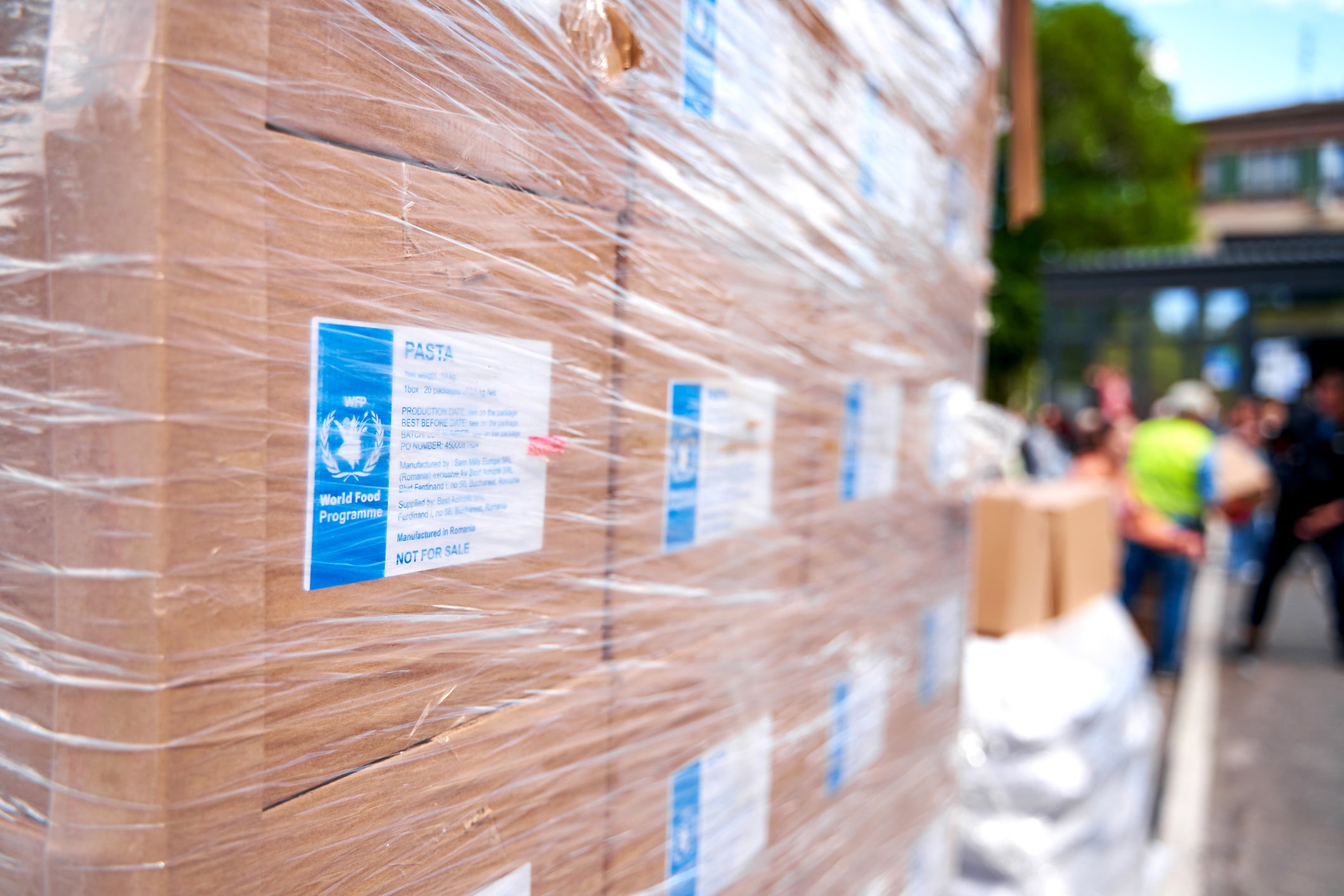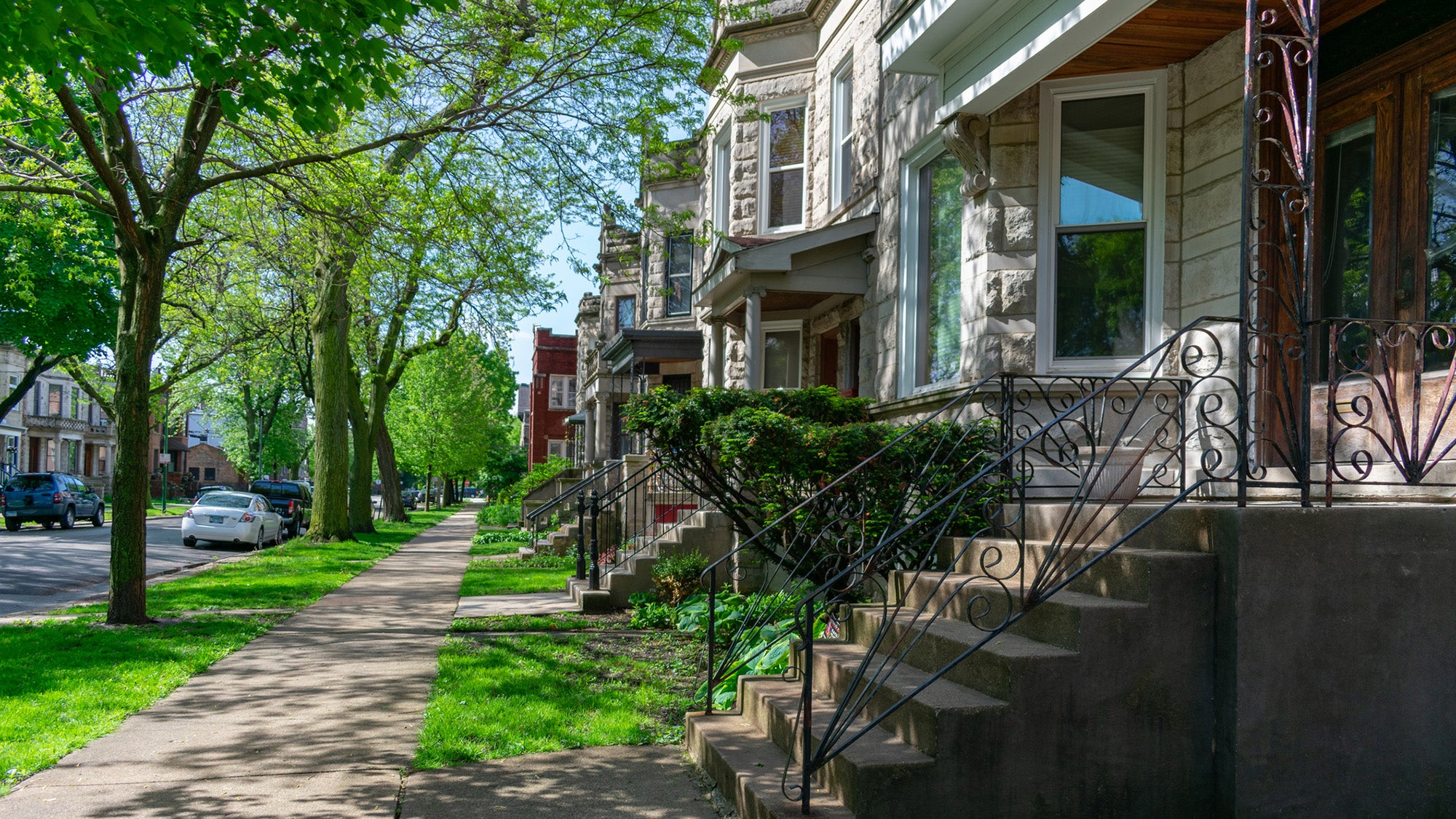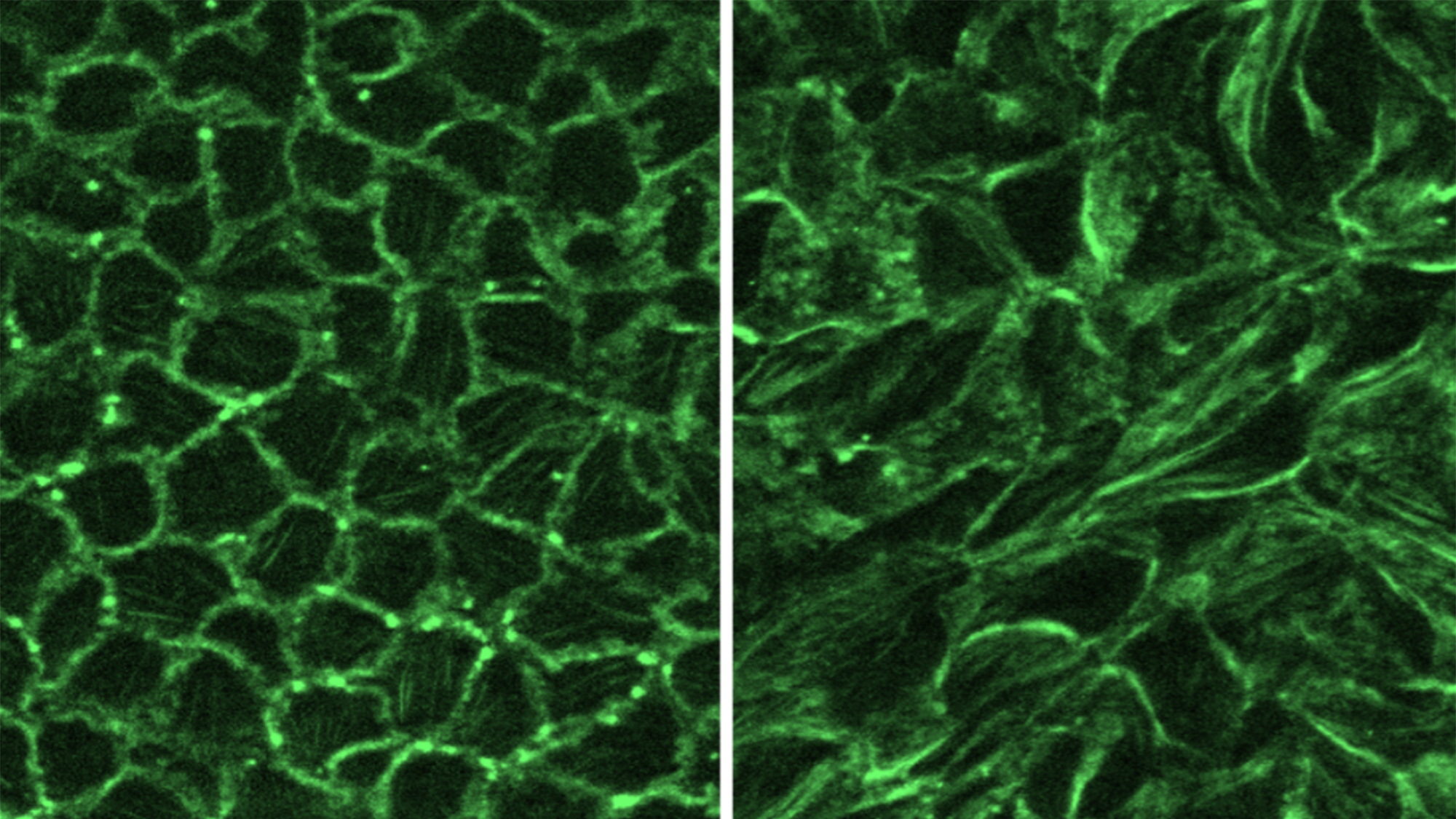Amid steep public health challenges, Harvard Chan graduates told they’re ‘a force for good’
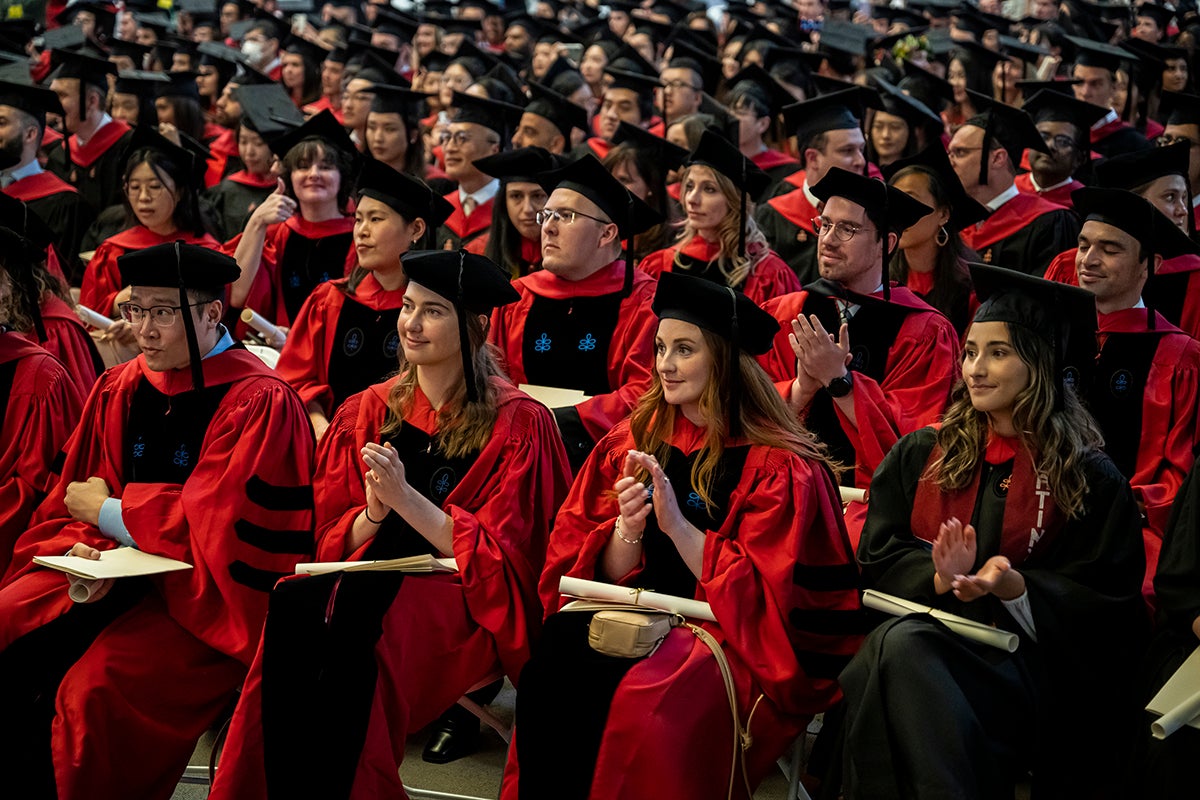
May 25, 2023 – A host of problems—from science skepticism to the climate crisis to systemic inequities to societal violence—await those entering the field of public health, graduating students were told at Harvard T.H. Chan School of Public Health’s Convocation ceremony. But each speaker at the event also expressed confidence that the graduates could more than meet the challenges.
As Harvard Chan School Dean Michelle Williams put it, “This is your world, for better or for worse, and you have what it takes to change, and quite possibly, to transform this world.”
The Convocation for the Class of 2023, held at the Reggie Lewis Center in Roxbury Crossing on May 24, celebrated the accomplishments of 699 graduates. Degrees, which will be officially granted at the Harvard Commencement ceremony on May 25, included doctor of philosophy (84), doctor of public health (9), master in health care management (25), master of public health (392), and master of science (189). The graduates came from 36 U.S. states and 42 different countries.
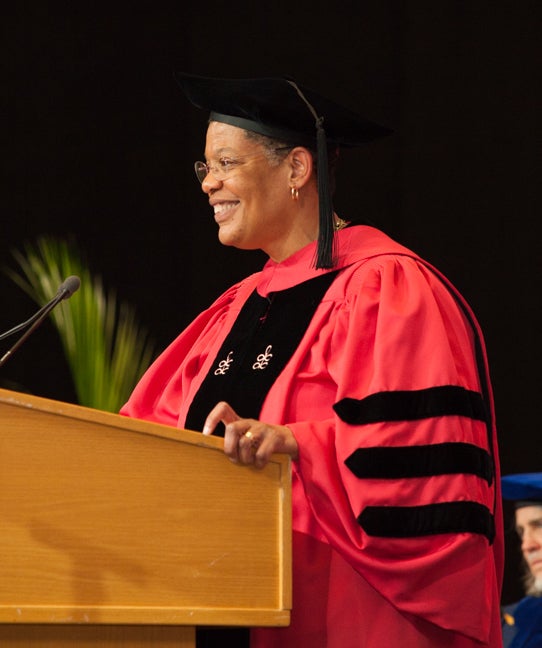
Williams acknowledged that the challenges facing the graduates “are steep, even at a personal level.” She noted that one third of public health workers in the U.S. experienced harassment, threats, or stigma during the pandemic, and that half the U.S. governmental public health workforce left their jobs between 2017 and 2021. “If the current trends continue, this means 100,000 staff will have left their jobs by 2025,” she said.
“And yet,” she continued, “here you are. As older generations are essentially being chased out of their jobs, you are running toward the challenges.” She added, “In this perilous world, you are a force for good.”
Watch video highlights:
In addition to Williams, the ceremony featured remarks from student speaker Hailey Hernandez, MPH ’23; graduation speaker Carlos Alvarado Quesada, former president of Costa Rica; and Trishan Panch, president of the Harvard Chan School Alumni Association.
Also at the ceremony, Jane Kim, dean for academic affairs, announced the annual awards for graduating students, faculty, and staff.
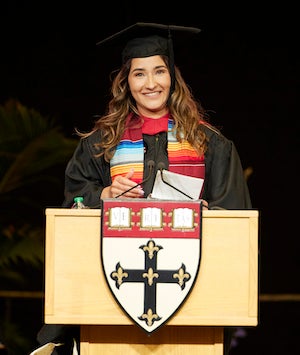
‘Choose which problem calls to you the loudest’
Hernandez shared her difficulties growing up poor. At 11, she said, she learned “that a roof over your head and food on the table did not always mean you were warm and full.” Ashamed of where she lived, she didn’t talk about it with others. She felt guilty asking her mother for field trip money, so she lied and said she didn’t want to go. She spoke about “the anger of working myself to the bone just to be somebody.”
Hernandez’s family, like other low-income families, experienced “the stress of being cogs in a machine that was not built for you.” She said that, by age 21, “I wanted to be done. Done writing essays about how growing up poor built character. Done ‘beating the odds’ while others upheld systems, perpetuating them.”
Hernandez decided to go into public health, with the goal of dismantling unfair systems. When she first got to Harvard Chan School, she was overwhelmed. She recalled thinking, “How do I fix all of this? How do I fix the healthcare system, address social determinants of health, solve the climate crisis, regulate drug prices, demand health and environmental justice, and still live a joyful, simple life where I see my friends, walk my dog, and have money to keep a roof over my head and food on the table?”
She finally figured it out, realizing that she didn’t have to fix it all—that she just needed to pick one problem and work at it. “Choose which problem calls to you the loudest and fight,” she told her fellow graduates. “But don’t be discouraged. Don’t be overwhelmed. Be proud of everything you have already done.”
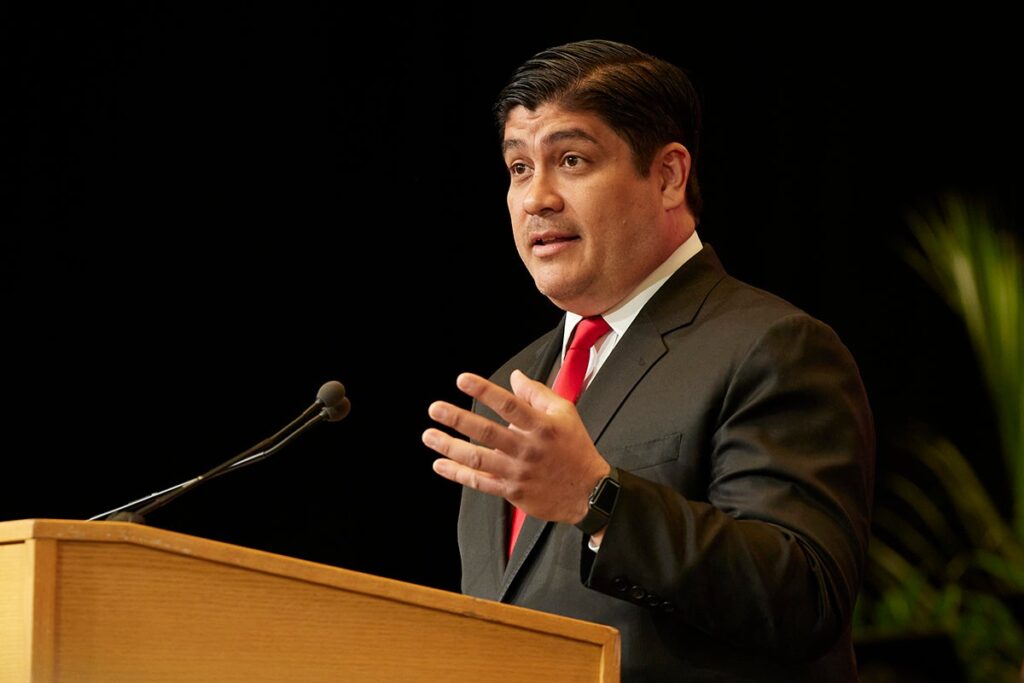
‘A matter of choice and character’
Alvarado, who served as president of Costa Rica from May 2018 to May 2022, spoke about remaining hopeful in spite of attacks against science, the importance of having character when facing tough decisions, and the need to tackle climate change.
Even though the scientific and healthcare community faced obstacles during the pandemic—such as pushback against simple and powerful disease-fighting steps like handwashing, wearing a mask, or getting vaccinated—Alvarado said that he sees hope in the path ahead. To deal with future challenges or difficult decisions, the key is to have character, Alvarado said.
“The best evidence of character is the ability to confront and conquer the enormous fear that might come hand in hand with making big decisions, the tough ones,” he said. He told the graduates that they will likely face decisions where there is no clear right answer. “You might not have enough information to completely be sure about the best course of action, nor the time to gather it. And still, you might end up picking between tough and complex alternatives, and needing to strike a careful balance between them, as I found myself doing, with other colleagues, during the COVID-19 pandemic and at other critical junctures,” he said.
He added, “To make the best-informed decision, the decision that best fits the public interest, the one that better protects the interest of this generation and of future generations, is at the end a matter of choice, a matter of liberty, freedom, a matter of character.” He said that he has hope for the future “because I believe you can make that choice—and have already done it in your heart when you took the public health professional pathway.”
Alvarado also spoke about climate change. Noting the “immense intersection between climate change and public health,” he called decarbonization a key driver to improve air quality, protect natural ecosystems that provide fresh water, boost food security, and protect the most vulnerable people, who are disproportionately impacted by global warming. Costa Rica took the lead on the issue in 2019, issuing a plan to achieve net zero carbon emissions by 2050.
He cautioned, however, that the world will have to address a slew of difficulties involved with decarbonization, including the estimated fourfold increase in metals and minerals needed for batteries, electric vehicles, and other equipment; the need for preparedness, adaptation, and mitigation; and the need to help economies reliant on fossil fuels to diversify. Alvarado said, “We cannot end up with a decarbonized but more unjust world in 2050”—the year set by the Paris Agreement to achieve net zero carbon emissions. “Yes, all of this is complex. Reality always is.”
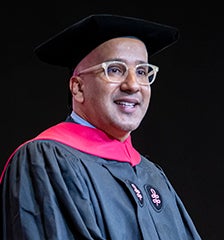
In face of AI, public health still needs the human touch
Panch—who co-founded Wellframe, a digital health company that uses technology to improve chronic disease management, and who co-led the company for nine years—spoke about how artificial intelligence (AI) has begun to reshape the fabric of society, including health care. “Neural networks are now outperforming experts in multiple domains,” he said. “This is both remarkable and, let’s face it, a little bit terrifying.”
He asked, “You might wonder, what does the future hold for public health professionals? Was this degree worth the sacrifices you and your families have made? Will AI eventually eclipse the need for human expertise in our field?”
Panch acknowledged that AI will likely have a significant impact on the field of public health, including helping diagnose diseases, predicting outbreaks, and analyzing vast amounts of data. But he said that “no matter how advanced AI becomes, there will always be aspects of public health that require the unique insights, creativity, and empathy that only teams of humans can provide.” He added, “AI may enhance your effectiveness, but it cannot yet fathom the depths of the embodied human experience or navigate the subtleties of interpersonal relationships. For the foreseeable future, only people can accomplish that.”
{{cbox placeholder}}
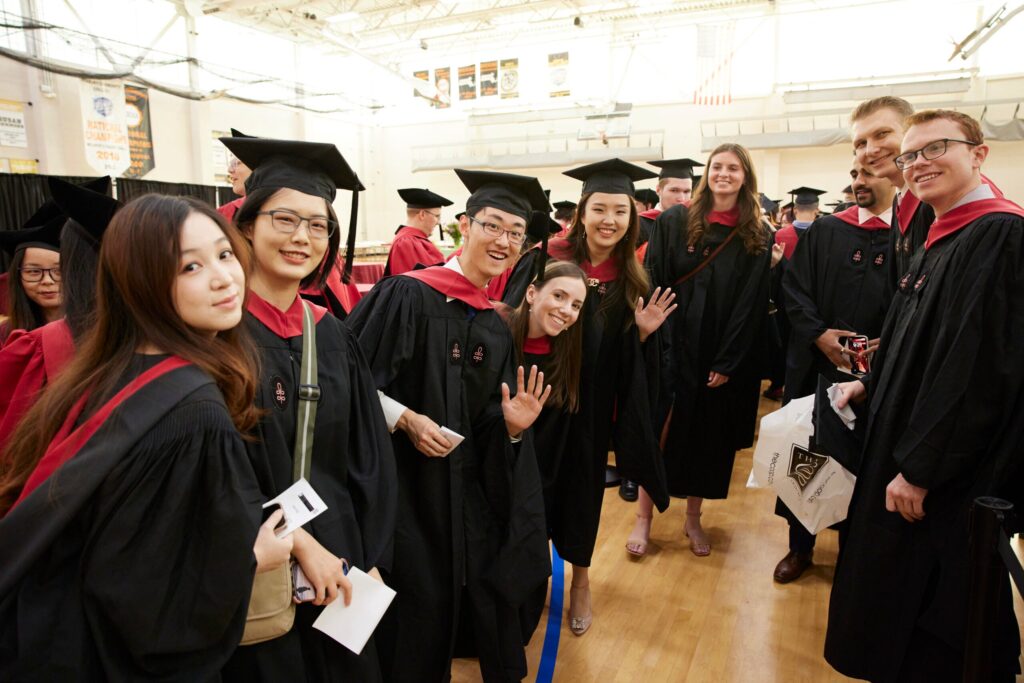
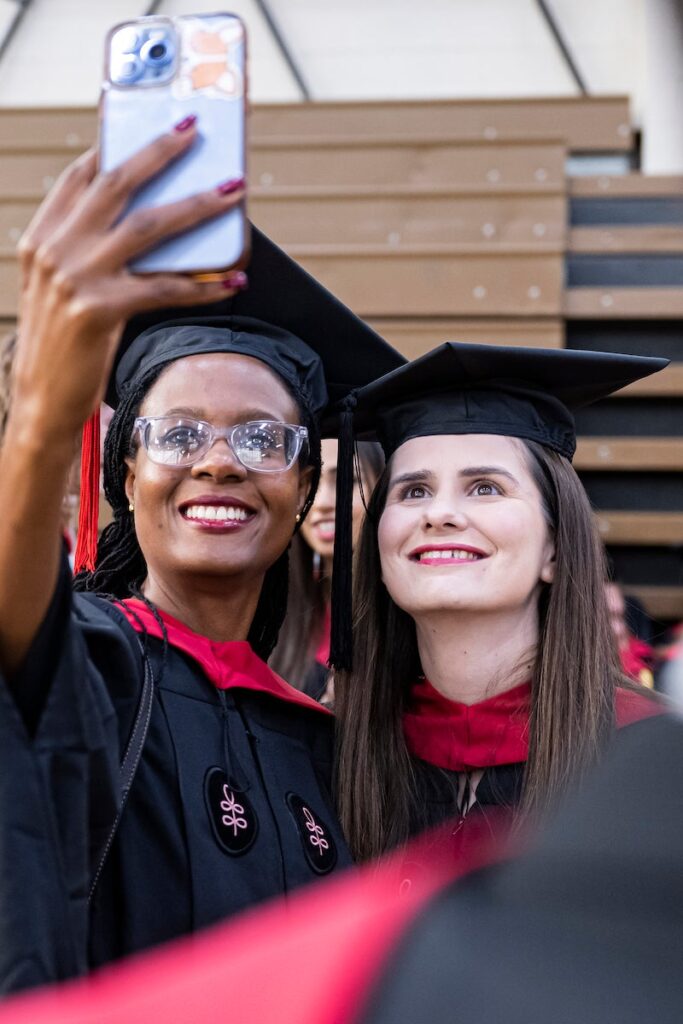
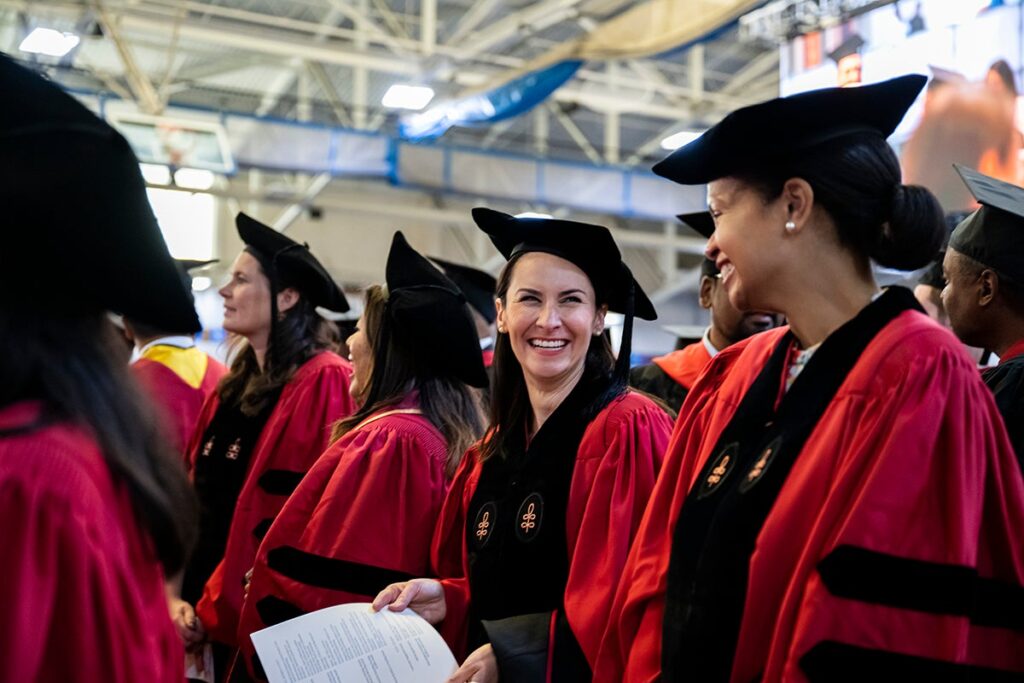
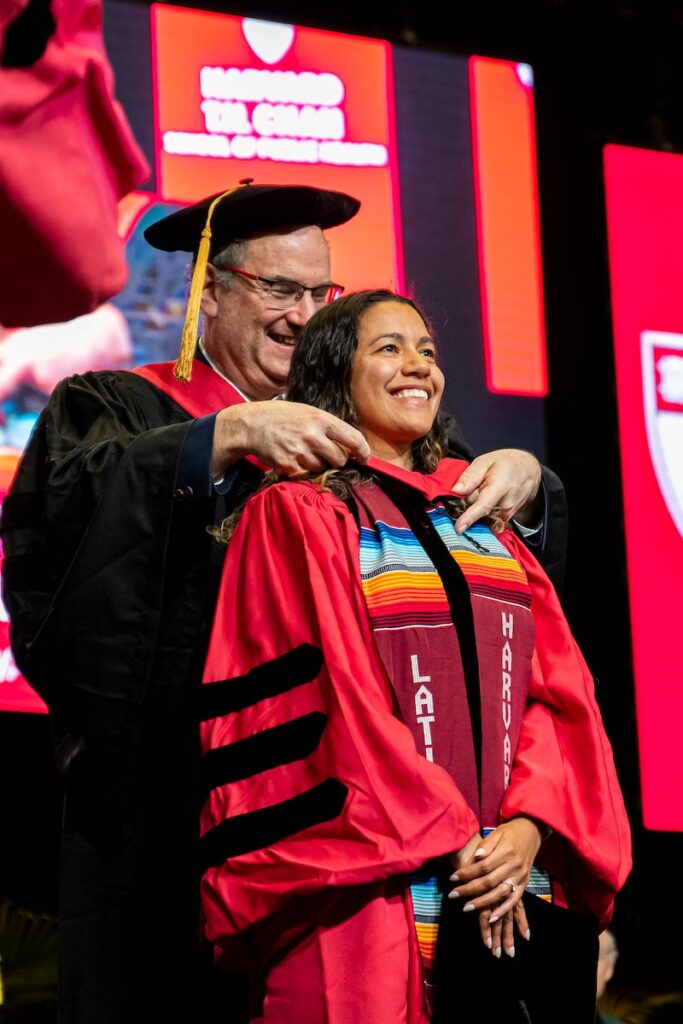
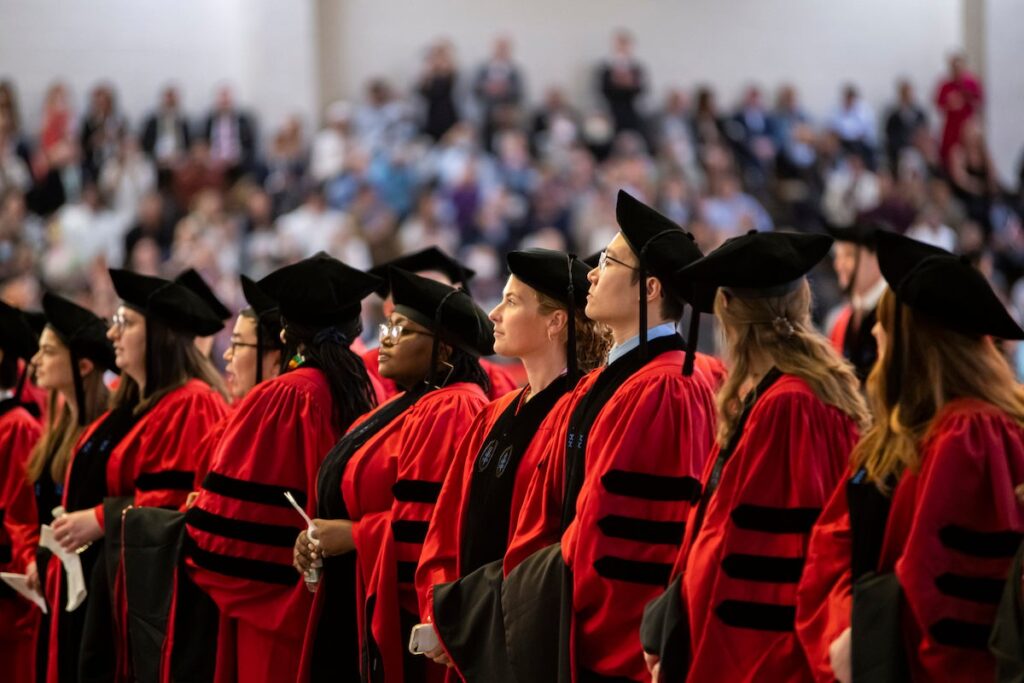
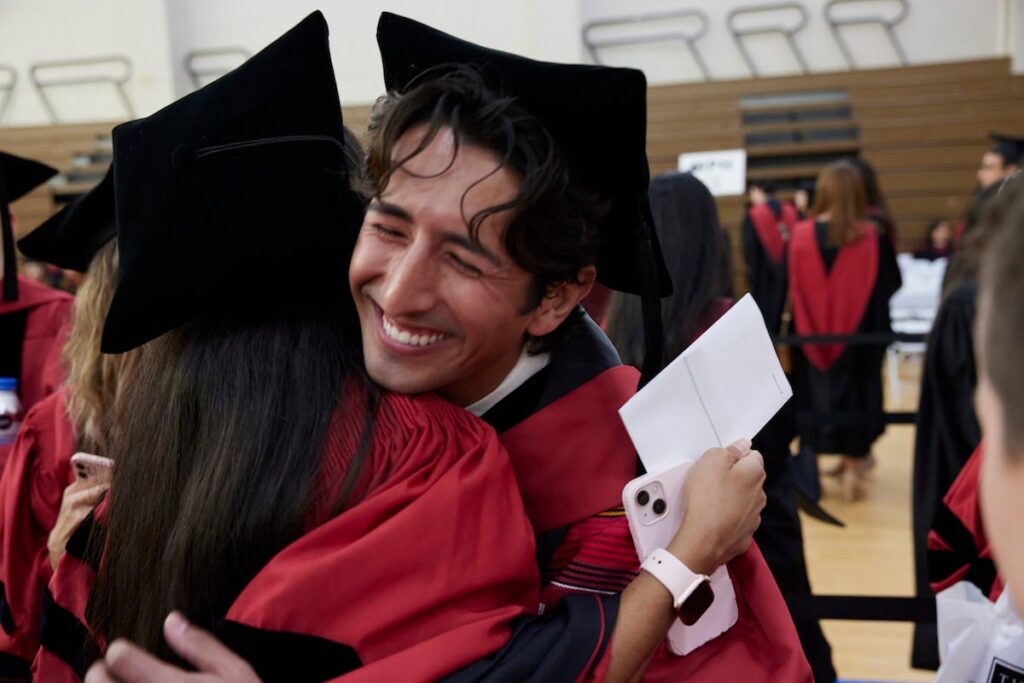
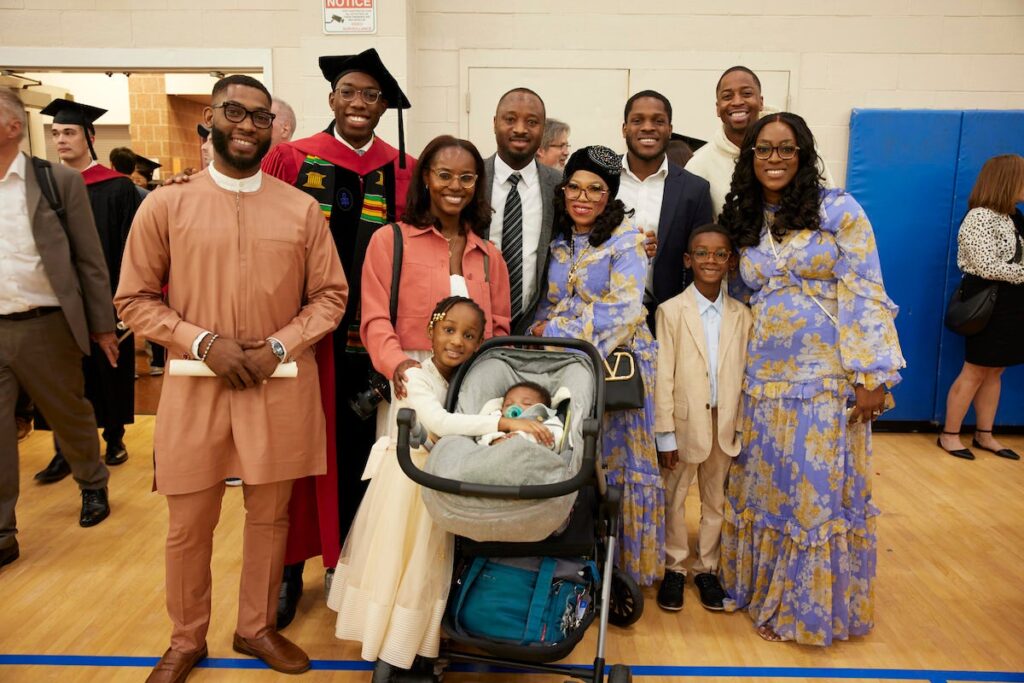
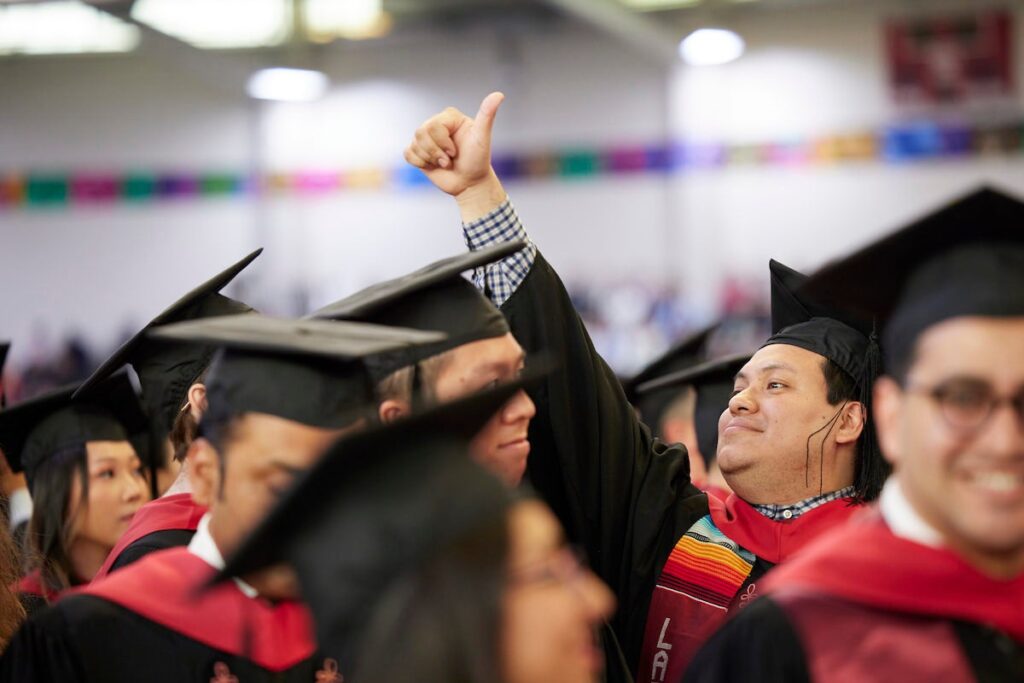
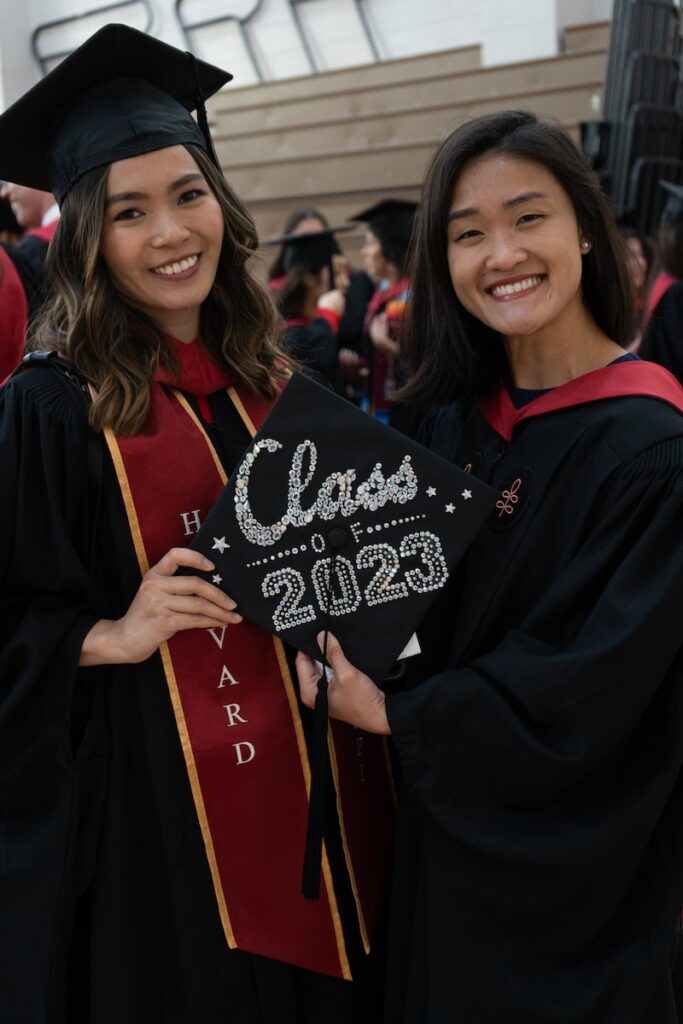
Photos: Kent Dayton, Ben Gebo, Anna Walsh
Additional coverage
Watch video of Harvard Chan School’s 2023 Convocation
Watch Convocation video highlights
Graduation 2023: Award winners
First fully online MPH program at Harvard Chan School graduates inaugural class
